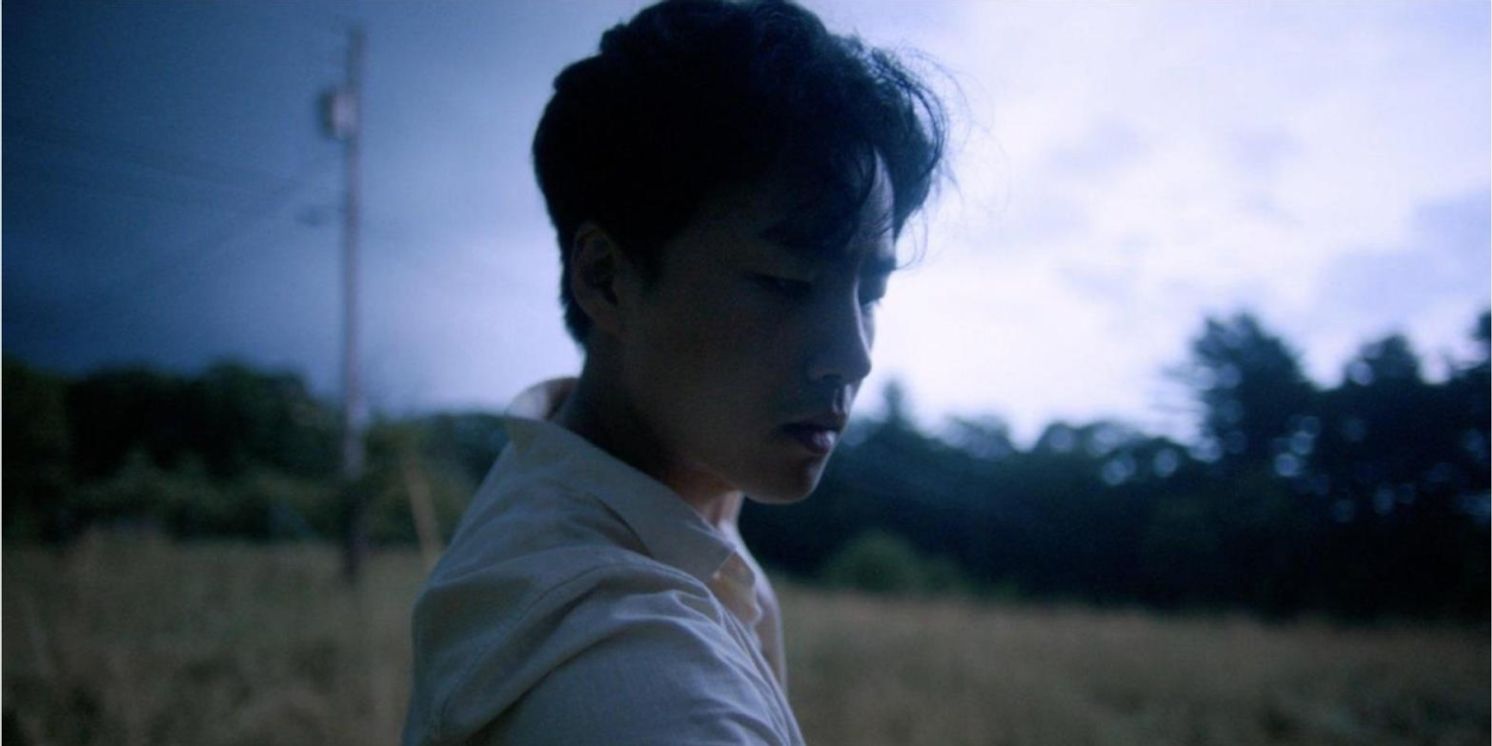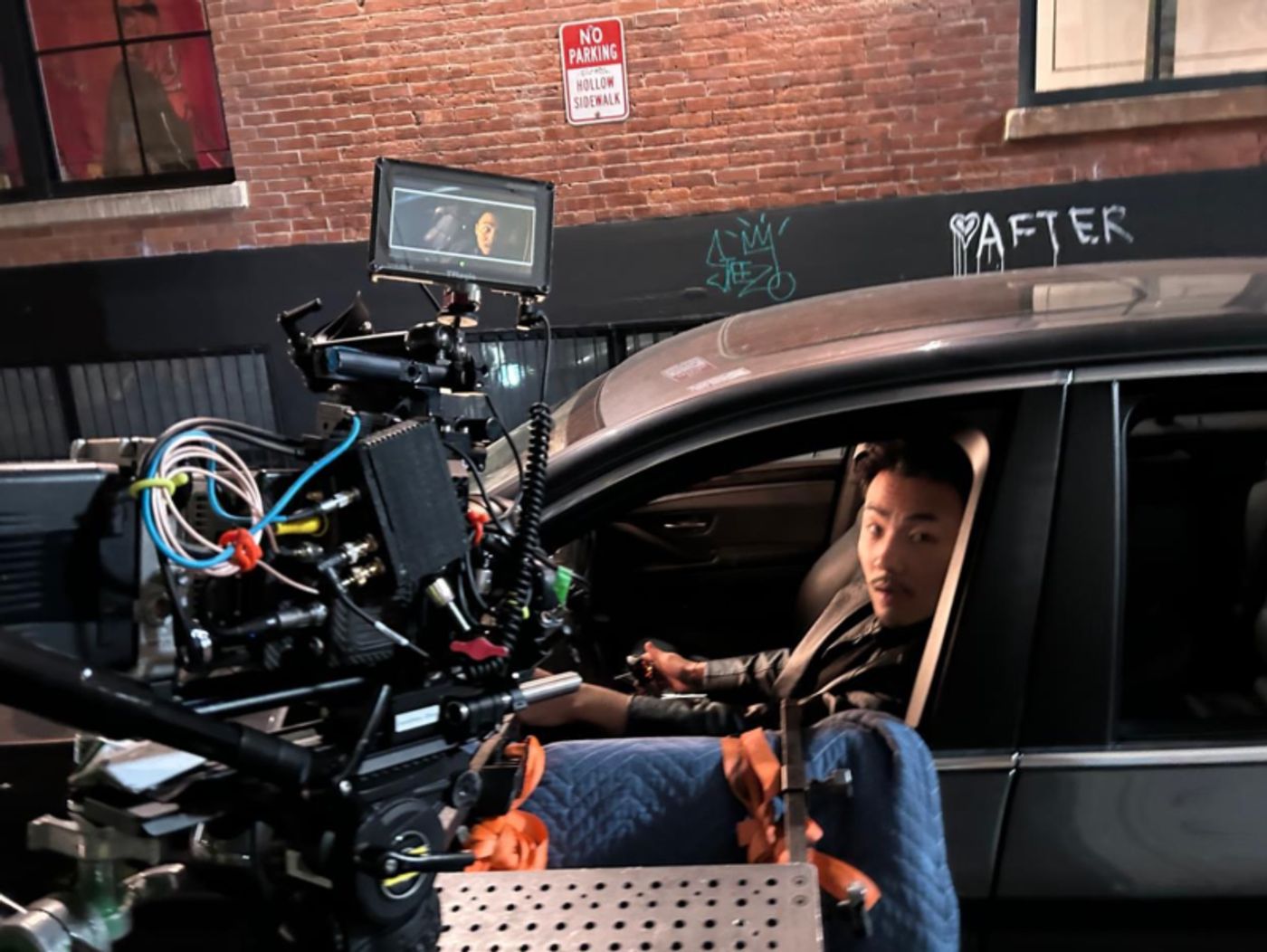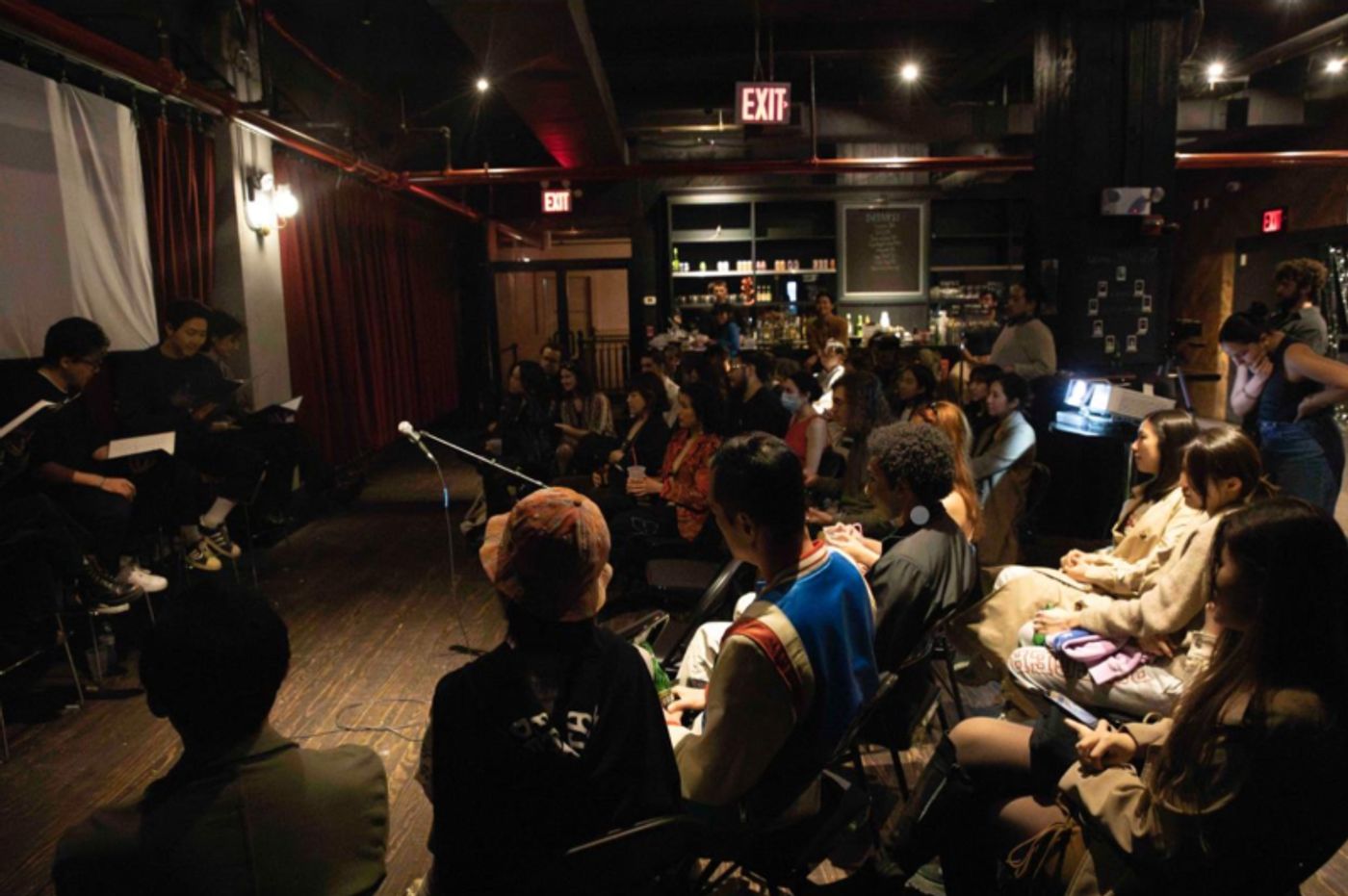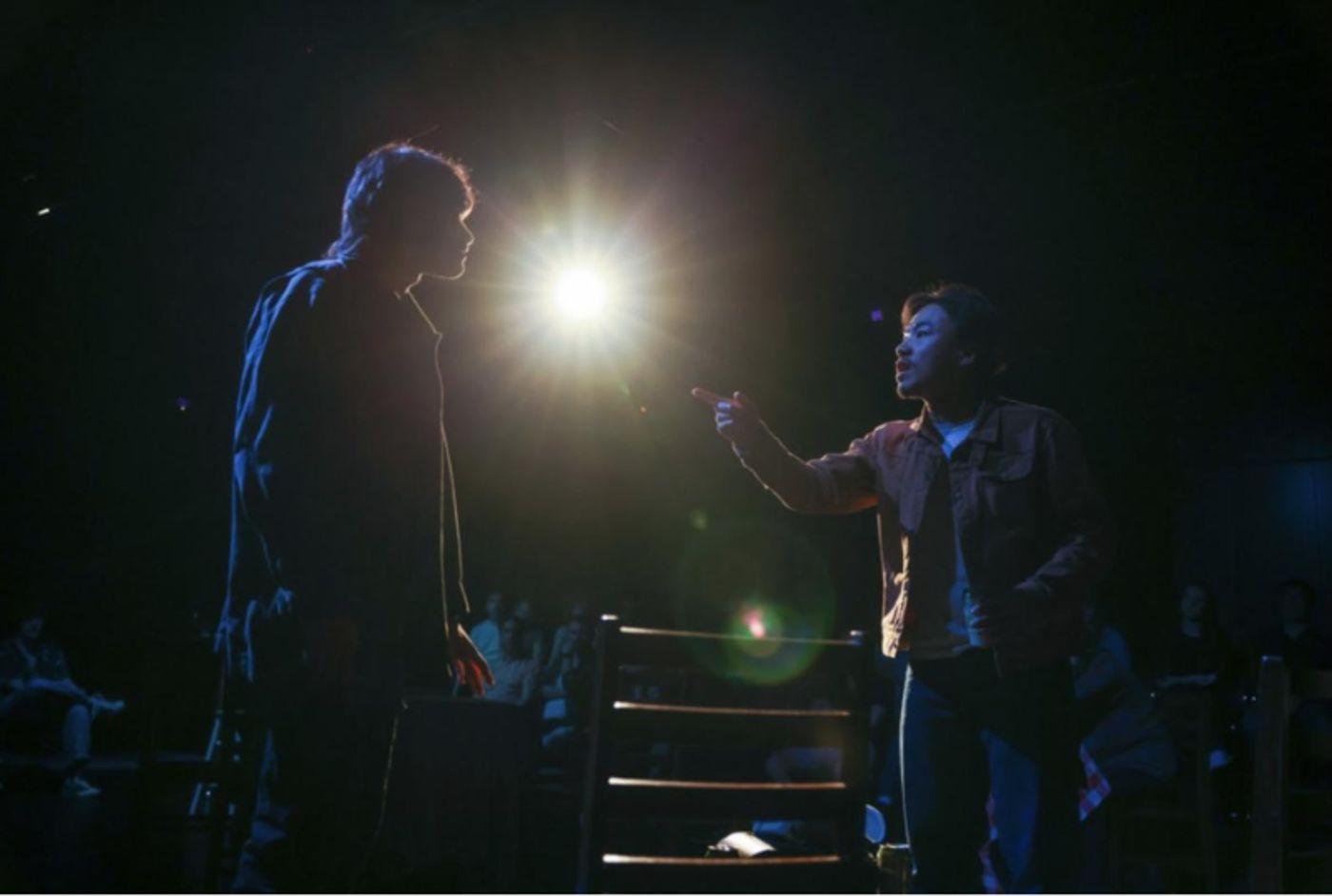Interview: Breaking Limits, Genres, and Borders - Ji Woo Jung Talks About Pursuing an Artistic Career in America as A South Korean National
Meet Ji Woo Jung, a promising actor who has been passionately following his professional artistic journey in New York.

As a South Korean theatregoer living in South Korea, I have always been interested in artists of Asian nationalities pursuing their artistic careers on Broadway. Whenever I heard more and more stories of artists of foreign nationalities who had already coursed amazing paths with their professional careers, I felt more connected to Broadway and American culture in general, even though I have been living in Korea for most of my life.
This time, I had a lucky opportunity to interview Ji Woo, who is a South Korean actor based in New York City. He has not only explored his career as an actor but also expanded his artistic borders as a producer and a director. Read the full interview below, and join me in learning more about this young, passionate actor who was very eager to share his story as an artist in New York as a South Korean. I hope to hear more news about Ji Woo and his works in New York soon.
Could you introduce yourself to the readers?
Hello, I'm Ji Woo Jung (written as 정지우 in Hangul, the Korean alphabet), a South Korean actor residing in New York City. My journey in acting began in high school, and I further honed my skills, graduating from NYU's acting school. Since 2015, I've called New York home, passionately pursuing my career as an actor. Some of my notable works include "Sunkissed Sky" (Selected for DisOrient Film Festival and CAAMFest), "Say Something" (Featured in Hawaii Film Festival and CAAMFest), and the play "Wyoming," directed by Caroline Neff.
What did you find interesting about acting that made you pursue a career in acting? When did you first dream about becoming an actor?
As an actor, my love for stages has been a constant companion since my youth. The allure of spotlights has always captivated me, and witnessing my friends, or any audience, relishing my stage presence has been a source of immense joy. Throughout my performances, friends and family often remarked on the myriad of facial expressions I exhibited, a sentiment particularly cherished by my mom. The journey toward becoming an actor began with a transformative experience during a musical in elementary school. This ignited a passion that led me to apply to arts high schools in middle school. The Interlochen Arts Academy in Michigan became the starting point for my acting endeavors. Subsequently, I pursued a deeper understanding of my craft at NYU, solidifying my commitment to the world of acting. In the contemporary landscape, we are confronted with a myriad of career choices, and the abundance of accessible information empowers us to pursue our passions. My dedication to acting deepened during my two-year service in the Korean military. Daily reflections during training compelled me to contemplate my life's purpose post-service, with the physical challenges reinforcing the necessity for logical and flawless thoughts regarding my passion for acting. Despite the arduous path, my tenacity solidified, and acting emerged as the singular path I was determined to tread. The ongoing pursuit of my acting aspirations is a lifelong journey. The time spent in the Korean military only fortified my commitment, reminding me that the path to greatness in acting is neither simple nor finite. I am currently in the perpetual process of achieving this lifetime goal, understanding that the journey itself is as crucial as the destination.

You have been further expanding your artistic life as a producer and director. What made you try out all these different roles, and what do you think are the differences between these roles?
Producing and directing are entirely distinct roles. Producing can be a real pain because you're the one in charge of the finances to bring artists' creativity to life. It's challenging to discuss money in the context of the arts, as artistic aspirations can lead to endless possibilities. Even with low-budget films and stage productions, the stress is remarkably high. The weight of responsibility for the project, ensuring accurate financials, and avoiding time constraints can be overwhelming. On the other hand, I believe directing is an extension of acting. Although I've only worked as an assistant director for Shakespearean stage productions, understanding actors is essential for the job, aiming to reveal the truth embedded in the play or script. My teacher, Robyn Hunt, who studied with Tadashi Suzuki, once shared, "A director's job is simple: to make the actors look great on stage." While it may sound straightforward, looking good means connecting with the audience and aligning with the director's vision. This requires actors to work in harmony, consistently seeking moments of truth on stage. Success is not guaranteed, but all actors and directors can do is fully commit to the job. Directors oversee all actors and staff, ensuring clarity, cleanliness, and precision in conveying their vision. The director's vision must be clearly communicated to all involved artists so that everyone can fulfill their roles. Undoubtedly, acting is comparatively easier than directing or producing.
Among all the shows you’ve participated in (including the ones you’ve done in school), which one is the most memorable for you?
Delving into a transformative experience, my most memorable endeavor diverges from a specific show, centering on my role as a Suzuki teacher in training alongside Robyn Hunt for NYU undergraduates and Columbia graduates. Despite its recency, the profound lessons I garnered extend beyond the realms of acting and teaching, permeating into my personal journey as an individual committed to authenticity on stage through body, words, and sensibility. During this venture, Robyn Hunt shared a profound insight from Tadashi Suzuki – "acting is not about emotion but the exhilaration of concentration." This revelation reshaped my perspective on the actor's craft, emphasizing that actors are not merely expressionists but interpreters tasked with reflecting others' stories with utmost sincerity and sensitivity. The cornerstone for achieving this lies in the intense concentration required to embody sensibility on stage. Collaborating with Robyn involved meticulous preparation for each class, a process akin to a director's role in training actors. Through this, I not only honed my skills as a teacher but also identified and addressed my weaknesses as an actor. The tendency, especially among young actors like myself, to push emotions in a quest for perfection and audience satisfaction became apparent. Obtaining ease in performance emerged as a challenging pursuit, with concentration standing as the singular weapon to navigate the demands of a two to two-and-a-half-hour stage performance, fulfilling the tasks we are assigned. This experience underscored the intricate balance between achieving emotional depth and maintaining the necessary focus to deliver a compelling and sustained performance.

Apart from theatre, you have also worked continuously on movies and music videos. Do you feel any differences between these genres as an actor?
Navigating the role of an actor involves immersing oneself entirely in the task at hand, finding a certain ease in the given responsibilities. Understanding the intricacies, such as camera angles, lighting, and the nuances of on-screen presence, becomes paramount. While this dynamic significantly differs from stage work, where minute details carry weight, it's crucial to acknowledge that details matter in both realms. Effective communication with the director and director of photography (DP) becomes a linchpin in achieving the desired outcome. Each tool, whether on screen or on stage, contributes uniquely to the overarching narrative. Despite the differences, the fundamental objective remains consistent – conveying a compelling story. Furthermore, considerations like voice range and articulation add another layer to the actor's toolkit. On stage, the challenge lies in projecting one's voice to reach every corner of the audience without appearing forceful. This subtle interplay of various elements underscores the complexity of an actor's craft, where attention to detail, adaptability, and effective communication converge to shape a compelling performance.
Do you have a favorite Broadway show? Have you watched shows in Korea before? (If you did, what did you think about them?)
One show that stands out prominently in my memory is "Prayer for the French Republic" by Joshua Harmon, an experience that unfolded on the evening of March 17th, 2022. This theatrical masterpiece left an indelible mark on me, challenging my preconceptions of theater by skillfully intertwining information with a profound sensibility. What struck me most was the show's ability to weave the experiences of each character into the complex tapestry of different generations' traumas. As the narrative unfolded, I found myself deeply moved, drawing poignant connections between the characters' stories and my personal experiences, particularly those shared with my grandparents about the Korean War. The production served as a poignant reminder of how our individual philosophies are intricately correlated with our collective past and ancestral heritage.
Reflecting on my exposure to Korean shows during my time in Korea, I must admit that recent opportunities have been limited. However, I hold a strong belief in the power of Korean musicals, drawing from vivid memories of my youth. Unlike some American Broadway shows that may prioritize spectacle, Korean musicals often delve into the raw and authentic human experience. This emphasis on the genuine essence of performance, rather than the sheer scale or grandiosity, struck me as a distinguishing feature that sets Korean productions apart. In summary, my favorite show, "Prayer for the French Republic," has not only enriched my understanding of the potential of theater but also prompted introspection about the profound connections between personal narratives, history, and the essence of human experience.

What does ‘performing arts’ mean for you? What inspires you as an artist?
Undoubtedly, my creative journey is propelled by a profound belief in the power of performing arts to connect people on an intimate and emotional level. I view performing arts as an opportunity to share what we hold inside, a vulnerable and deeply personal experience. It involves breaking through the innate survival instinct to protect and not share, making it a bold and fierce endeavor. In the grand scheme, our time is finite, and the essence of our desires often centers around emotional and personal connections. This, I believe, is why holidays and theatrical performances hold such significance—we seek to celebrate and share our intimacy. As a performing artist, this is not just a seasonal pursuit but a daily commitment. Opening up every day demands confidence and tenacity. I hold immense admiration for fellow performing artists who continually dedicate themselves to sharing fragments of their lives. My mission is to find enduring joy in the ease of expressing intimacy, making it a seamless part of my daily performance. Through interpreting characters and reflecting on my personal insights, I aim to draw closer to the audience by forging meaningful connections. Ultimately, my goal is to contribute to the celebration of shared human experiences through the art of performance.
As a Korean citizen acting in America, what difficulties have you faced? What helped you overcome these situations?
Certainly, the landscape for Asian performers, particularly actors and directors, has evolved significantly over the past five years. However, when I first arrived in the United States in 2009, the scenario was quite different. Information about Asian playwrights, specifically Korean playwrights, was scarce. My introduction to these playwrights occurred during my time at Tisch, where I delved into the works of influential figures like David Henry Hwang and Julia Cho. The theatrical scene has transformed since then, with an increasing number of emerging Asian playwrights, especially in the vibrant theater community of New York City. I've had the privilege of attending shows at MaYi Theater and La MaMa, witnessing the growing opportunities for Asian voices. Nevertheless, as an actor, navigating the quest for opportunities remains a perpetual challenge, requiring unwavering tenacity to overcome hurdles.
What kind of roles do you want to try out in the future? What kind of actor do you wish to become?
Engaging in a stunt for a recent music video was an immensely enjoyable experience, sparking a desire to explore more opportunities in that realm. The thrill and excitement of the stunt left a lasting impression, fueling a genuine interest in delving deeper into such physically dynamic roles. Moreover, I hold a fervent aspiration to undergo transformative experiences for roles that resonate deeply with my emotions. Whether it involves shaving my hair, altering my body, or undergoing a significant persona change, the prospect of fully immersing myself in a character that touches my heart is both enticing and thrilling. The idea of pushing the boundaries and embracing such creative challenges resonates with my passion for the diverse and transformative nature of acting.

What are your plans for the near future?
Continuing to diligently embrace the opportunities that come my way, I maintain a focused and dedicated approach to my work. By remaining committed to the projects that find their way to me, I aim to contribute wholeheartedly to each endeavor. The key lies in sustained effort and concentration, ensuring that I bring my best to every role and creative venture that unfolds on my professional journey. This steadfast commitment reflects my dedication to the craft and my ongoing pursuit of artistic growth and excellence.
Any further words you’d like to leave to our readers?
In the face of escalating inflation, particularly in New York City and globally, securing a stable income as an actor poses undeniable challenges. Yet, amidst this financial turbulence, it's crucial for artists to remember that beyond the current struggles, there is a beacon of hope. As creative individuals, we are equally valuable contributors to society, and our resilience and determination will guide us through these economic uncertainties. Together, we navigate these challenges with the understanding that, indeed, the light at the end of the tunnel awaits.
Videos

